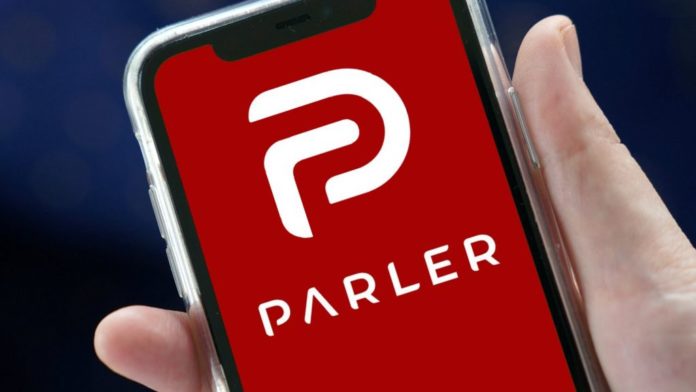Our libertarian friends have told us for years that if we do not like tech censorship, we ought to build our own platform. After this week, honest libertarians (which are admittedly uncommon) must admit that this approach to the problem has failed.
Parler was a Twitter clone designed with this idea, building our own platforms, in mind. For most of its existence, Parler was mostly small scale. Its limited audience made any outreach impossible; as Twitter is a left-wing echo chamber, Parler became a right-wing echo chamber. Over the summer of 2020, Parler saw its user base increase dramatically when Ted Cruz announced that he was making an account on the platform, joining other conservative figures like Donald Trump, Jr., Eric Trump, Brad Parscale, and Rand Paul. For a brief period over the summer, it even looked like Parler could be reasonably successful, as hundreds of thousands followed Senator Cruz. However, in my experience and the experience of others, Parler was a poorly optimized and glitchy experience, without engagement from normal, non-politically active people. After its meteoric rise, Parler quickly fell from grace and popularity again.
Then, it saw another brief rise in popularity following the permanent suspension of Donald Trump, which Twitter justified by saying there was a “risk of further incitement of violence” following the riotous but mostly peaceful Capital protests on January 6th. Parler became briefly the number one trending app on the iOS App Store. What happened next can only be described as a convergence by the powers that be against the app. First, Google suspended the app from the Google Play store because of its refusal to violate its free speech policy. Apple quickly followed suit, for similar reasons. Finally, adding insult to injury, billionaire Tech Baron Jeff Bezos suspended Parler from Amazon’s web hosting service, taking the app entirely offline– even for those who accessed it from a computer or downloaded the app before it was purged. But somehow it gets worse. Because of Parler’s executive incompetence, several “security researchers” were able to get in and download 80 TBs of metadata, posts, videos, passwords, etc, leading to worries about a coming mass “dox.” In response, Parler announced that they are suing Amazon on antitrust grounds — but given the massive conglomeration of wealth and power under Bezos, it seems unlikely that this lawsuit will succeed. Thus, the most potentially-viable alternative to Big Tech has died in less than a week.
To continue to hold their position to “build your own Twitter,” the libertarian right must add several amendments. Building a Twitter competitor will no longer be enough — one would also have to build their own mobile operating system capable of challenging Android and iOS, their own payment processor, and their own web hosting service. The barriers to entry in this market have always been high; now, they are practically insurmountable. If Apple, Google, and Amazon– among the most wealthy and powerful corporations in the world — do not want an alternative platform to take off, they can ensure that it fails. Parler, an app that chugged along for years, has been effectively killed in less than a week, at the same time that Twitter and FaceBook have been purging right-wing accounts. For example, libertarian Ron Paul tweeted out that
“With no explanation other than ‘repeatedly going against our community standards,’ @Facebook has blocked me from managing my page. Never have we received notice of violating community standards in the past and nowhere is the offending post identified.”
– Ron Paul, January 11, 2021
Right-wing New York Post writer Sohrab Ahmari also reported having lost about 10,000 Twitter followers in the wake of this purge.
Libertarian a priori ethical judgments are unable to deal with this great crisis. What they call “principle,” the rest of the right calls “suicide.” Twitter, Facebook, and the rest of the Tech Giants will not be beaten in the market; only swift and decisive government action, (for example, the suspension of Section 230 protections), or a miracle, can keep the right in public discourse. These social media giants are, for better or for worse, the modern agora. It is high time they be treated as such.
Opinions expressed within are the property of their authors and do not necessarily reflect the opinion of any other member or the paper itself.









